The first speakers for the FRH Conference “Religious Heritage in Transition: Challenges and Solutions” have been confirmed!
Sub-theme 1: Resilient Heritage
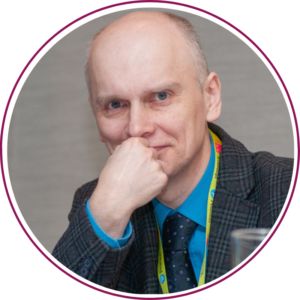 Nazar Kozak
Nazar Kozak
Senior Researcher at the Department of Art History in the Ethnology Institute (National Academy of Sciences of Ukraine)
Keynote speaker. Nazar Kozak serves as a Senior Researcher at the Department of Art History in the Ethnology Institute of the National Academy of Sciences of Ukraine. He earned his PhD from the Lviv Academy of Arts in 2000. Kozak was a recipient of several international scholarships and grants, including from the Fulbright Foundation (2016), Getty Research Institute (2019) and others. In 2001–2022, he taught art history at Ivan Franko University of Lviv. Kozak’s research focuses on political iconography and art exchanges within (post-)Byzantine cultural sphere. He also examines how contemporary art intersects with revolutions, wars, and ecological disasters.
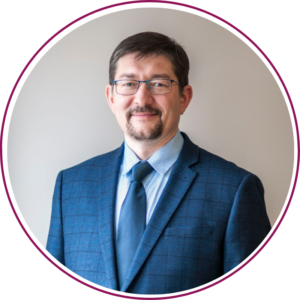
Romas Jakubauskas
Head of the Sunni Muslim Religious Centre in Lithuania (Mufti of Lithuania)
Romas Jakubauskas, born December 18, 1973, in Kaunas, Lithuania, is a prominent figure in Lithuania’s Muslim community. He holds a Bachelor’s degree in Islamic Studies from the University of Jinan, Tripoli, Lebanon. Serving as President of the Muslim Religious Community of Kaunas Region and Mufti of Lithuanian Muslims, he has been actively involved in religious education, interfaith dialogue, and Halal supervision across the Baltic States. With fluency in several languages, including Lithuanian, Arabic, and English, Jakubauskas has participated in numerous international conferences and seminars advocating for religious tolerance and understanding. He has translated significant Islamic texts into Lithuanian, including the Holy Quran.
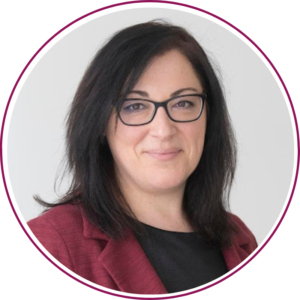 Lucía Conte
Lucía Conte
Post-Doctoral Researcher, Universitat Pompeu Fabra
Dr. Lucía Conte researches on Medieval and Modern Jewish History and early Hebrew printing at Universitat Pompeu Fabra. She has been a visiting researcher at the Jewish Theological Seminary of America and a visiting lecturer at the Hebrew University of Jerusalem.
A scientific assessor for the strategic plan “Aragón Sefarad: Legado y Memoria”, she leads the project for the recovery of Jewish Heritage in Híjar along with the Foundation for Jewish Heritage and the Town council and is a member of the Jewish Heritage Network MORESHET, giving lectures about Híjar’s Jewish heritage recovery in Europe, the United States and Israel.
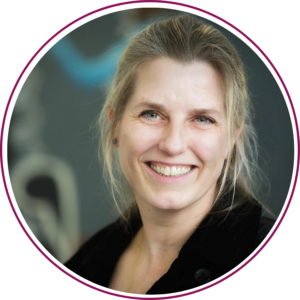
Patty Wageman
Director of the Groningen Historic Churches Foundation (Stichting Oude Groninger Kerken)
Patty Wageman is an art historian and worked in several Dutch museums for many years before becoming the director of the Historic Groningen Churches Foundation (Groninger Kerken). This foundation owns more than one hundred churches in the region of Groningen (the Netherlands) and plays a pivotal role in conserving them for the future, and creating awareness of this particular cultural heritage amongst a wide and diverse audience. Before assuming her role at the foundation, she was director of the Museum De Buitenplaats Eelde. She has a lot of administrative experience, including as chair of the Arts Advisory Committee, Arts Council Groningen for the 2017-2020 subsidy round, and as a member of the Work Advisory Council of the Frank Mohr Institute, Hanze University of Applied Sciences Groningen.
Sub-theme 2: Sustainable Solutions
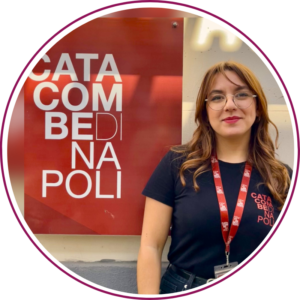 Serena Napoletano
Serena Napoletano
Member of La Paranza Social Cooperative
Keynote speaker. Passionate about history, art, design, and photography, believing in the transformative power of preserving places, people, and community. A member of La Paranza Social Cooperative since 2018, contributing to the revitalization of the Catacombs of Naples and Rione Sanità through beauty and employment initiatives. Currently, narrating the history and essence of these places to visitors, fostering international connections within the heritage community, and co-managing the cooperative’s bookshop.
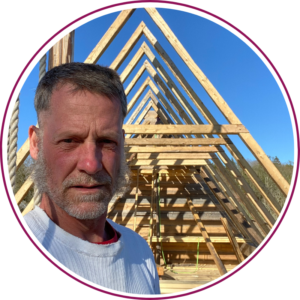
Karl-Magnus Melin
Carpenter/craft researcher and doctoral student at the University of Gothenburg. ICOMOS wood expert member
Karl-Magnus Melin is a carpenter and craft researcher and doctoral student at the University of Gothenburg. He also a wood expert member of ICOMOS. Field of interest: Research and reconstruction of historic craft, as an apprentice with the aim to learn instead of judging. Reclaimed knowledge can be used to better understand, value and preserve the heritage and also be useful today. Project leader for: the diocese project Historic carpentry art in the Diocese of Lund 2014-2022 and the restoration of Ingatorp tithebarn 2014-2018. The restoration was awarded with the Europa Nostra Heritage award 2019. Involved in the reconstruction of Södra Råda church since 2007.
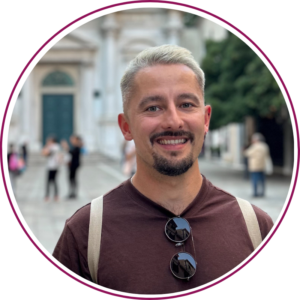 Adam Klups
Adam Klups
Care of Churches & Diocesan Advisory Committee Team Leader and Senior Church Buildings Officer at the Anglican Diocese of Gloucester, United Kingdom
Adam Klups is Care of Churches & Diocesan Advisory Committee Team Leader and Senior Church Buildings Officer at the Anglican Diocese of Gloucester, United Kingdom. He is passionate about sustainable conservation management, community-led conservation, and adaptive reuse of historic buildings. He holds a BA in History of Art with Material Studies, and an MA in Principles of Conservation, both from University College London. Following the vote of the General Synod in February 2020 for the whole of the Church of England to achieve net zero carbon by 2030, he has been involved in coordinating the diocesan response, professional advice, and resources, to support decarbonisation of almost 400 churches in the Diocese.
Sub-theme 3: Digital Futures
Marc Grellert
Professor at the Technische Universität Darmstadt and co-founder of Architectura Virtualis
Keynote speaker. Marc Grellert teaches at the Technische Universität Darmstadt and is co-founder of the company Architectura Virtualis. The focus of his research and work are Virtual Reconstructions, remembrance and conveying of knowledge with the help of digital media as well as development and realization of installations and exhibits for museums. At Darmstadt University Marc Grellert has led numerous national and international research projects in the context of Virtual Reconstruction. 1994 he initiated the virtual reconstruction of synagogues destroyed by the Nazis and developed in 2002 the “Synagogue Internet Archive”. In 2007 he received his doctorate over the potentials of digital technology for the culture of remembrance.
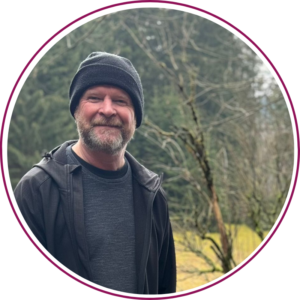 Dr Joseph Elders
Dr Joseph Elders
CBA(Hons) MA PhD, freelance professional specialising in religious heritage
Dr Elders trained as an archaeologist in the UK and now lives in Germany. He worked for the Museum of London and the Landsdenkmalamt Baden-Württemberg (Medieval Archaeology) before 25 years working for the Church of England, lastly as Head of Church Buildings Strategy. There he developed the Church Heritage Record, a GIS database of English churches and burial grounds which allowed for better management of these, including environmental and ecological aspects. This inspired the idea of a multi-faith, pan-European map and register of religious heritage, Sanctuary. Dr Elders and colleagues in the not-for-profit community enterprise Religioscape have completed a pilot for the Future for Religious Heritage.
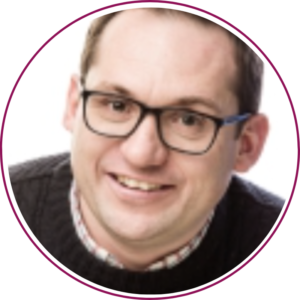
Andrew Sneddon
Senior lecturer in International History at Ulster University
Dr Andrew Sneddon is a religious, social and cultural historian and senior lecturer in history at Ulster University. He was previously president of the Ulster Society for Irish Historical Studies and currently joint editor of the journal, Irish Historical Studies. His latest research examines religion, witchcraft and magic in Britain and Ireland from the early modern period onwards. He has published numerous monographs, journal articles and edited chapters over the last twenty years on these subjects. He regularly appears in newspapers, on television, radio and podcasts to talk about his research. His latest interdisciplinary, collaborative public history project with Dr Victoria McCollum explores the Islandmagee witch trial in County Antrim in 1711 through: a museum exhibition, a play, a video game, a VR application, a graphic novel, a musical score, and an animated short: w1711.org.
 Victoria McCollum
Victoria McCollum
Director of Development and External Partnerships and Senior Lecturer Cinematic Arts at Ulster University, Derry
Dr Victoria McCollum is Director of Development and External Partnerships and Senior Lecturer Cinematic Arts at Ulster University, Derry. Victoria has strong research interests in difficult screen texts (films, TV and video games) that revolve around horror, demonisation, conflict and terror. She engages in lively and interdisciplinary research about what we watch and play, arguing that dark popular culture acts as a cultural barometer, reflecting the social, political, and cultural climate of its era.
Sub-theme 4: Quality of Life
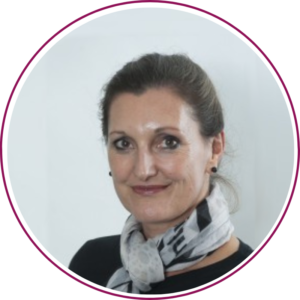 Melanie Kay Smith
Melanie Kay Smith
Associate Professor and Researcher at Budapest Business University
Keynote speaker. Dr Melanie Kay Smith (PhD) is an Associate Professor and Researcher whose work focuses on urban, cultural and wellness tourism and the relationship between tourism and wellbeing. This includes recent studies on the role of spirituality in tourism and its relationship to wellbeing. She was Chair of ATLAS (Association of Tourism and Leisure Education and Research) for seven years and currently runs an ATLAS Special Interest Group on Urban Tourism. She is the author of more than 150 publications, many of which focus on cultural tourism management, tourist motivation and wellbeing-related benefits of tourism.
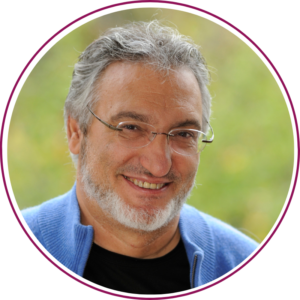 Bernabé Moya
Bernabé Moya
Botanist, international expert on Monumental Trees, Mature Forests and Biodiversity
Botanist, researcher and manager of Monumental Trees, Mature Forests and Biodiversity. Director of the Department of Monumental Trees of the Diputación de Valencia (1993-2016). Drafter of Law 4/2006 on Monumental Tree Heritage of the Valencian Community. Manager of European Projects: Interreg, MED, LIFE+. Study, conservation and dissemination in Protected Natural Areas and Natura 2000 Network in Spain, France, Italy, Greece, Portugal, Cyprus or Switzerland, as well as in Turkey, Mexico, Panama, USA, Morocco, Tunisia, etc. Publications: “Monumental Trees of Spain” declared of National Tourist Interest; “Monumental Trees and Mature Forests, Threatened in the Mediterranean Landscapes”.






Follow us: